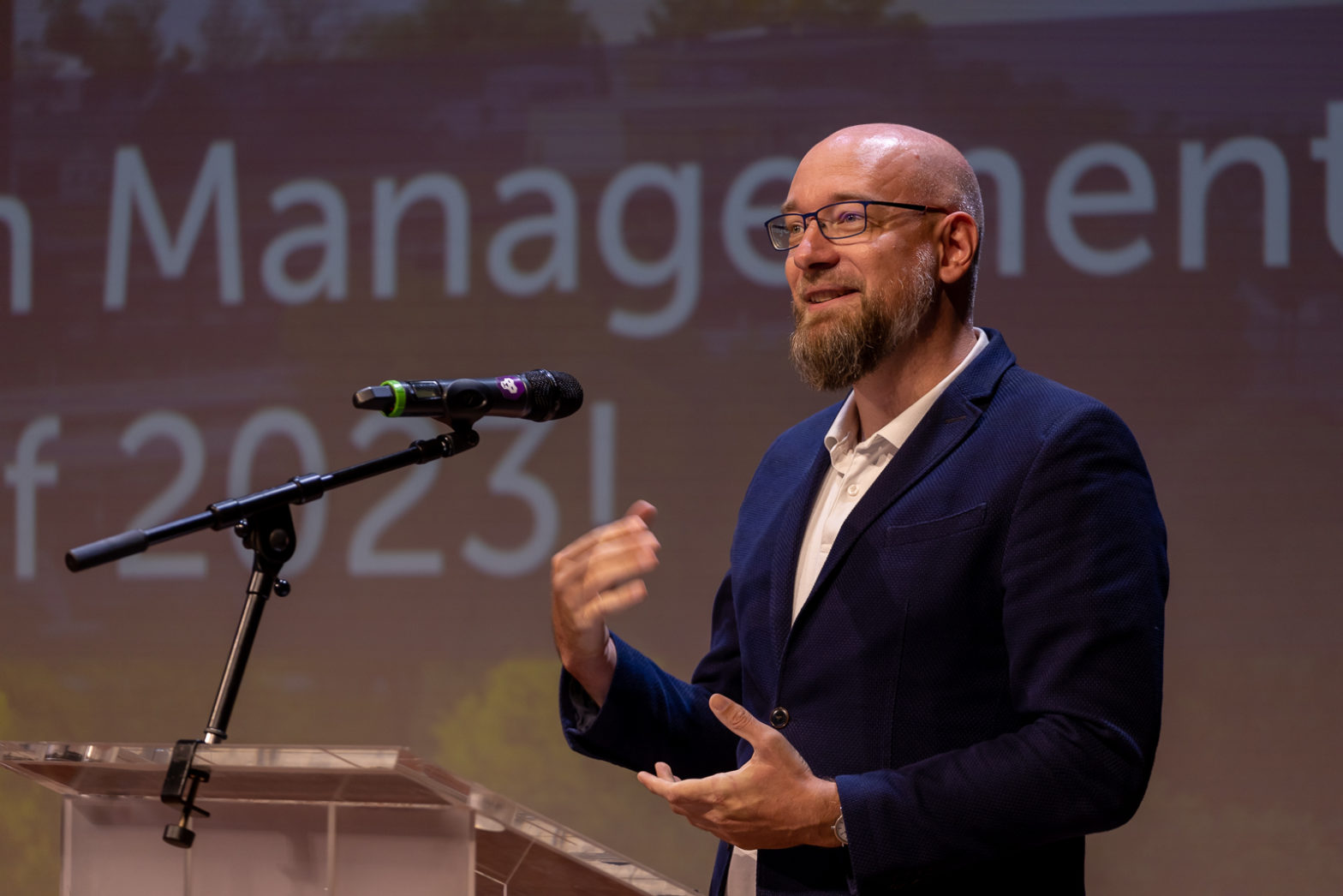
Photo: IHS
Climate change responses in cities: The role of knowledge and collaboration in policy design
25 November 2022
By Dr. David Dodman, General Director of IHS, the Institute for Housing and Urban Development Studies, Erasmus University Rotterdam
Cities are at the frontline of responding to climate change. The latest Intergovernmental Panel on Climate Change (IPCC) report clearly shows how urban areas will be severely affected by higher temperatures, sea-level rise and extreme events. It describes the impacts that these issues will have on urban economies and urban residents – particularly low-income and other marginalised groups.
At the same time, the report makes clear that actions taken in cities will be instrumental in reducing the risks faced by billions of people, and in contributing to a net zero future that limits the extent of global warming.
Knowledge about the impacts of climate change on cities is co-created by a range of actors. It is when municipal authorities, civil society groups and academic research institutions work together that the most relevant and significant findings emerge. For example, local authorities can evaluate risks from flooding and rising temperatures; residents understand first-hand the specific issues their communities face; and research and education institutions contribute to the knowledge and skills needed in cities as they adapt to climate change.
For almost 65 years, IHS, the Institute for Housing and Urban Development Studies, has worked with local authorities and communities to understand urban risk and trained urban professionals to design policies grounded in research and practice.
Policy and finance
Policy-makers and practitioners have several key roles to play in responding to climate change in cities. They can design and implement activities that have a direct effect on reducing risk, such as spatial planning that limits exposure to hazards or implementing risk-reducing infrastructure to limit harm. But broader improvements in institutions and governance also play a role: through ensuring that decisions made in cities are more responsive to the needs of residents based on careful and meaningful participation. IHS has trained thousands of urban policy-makers and practitioners who are now playing these roles in cities around the world.
A final critical element to urban climate responses is finance. The recent COP27 in Sharm el Sheikh showed how significant dedicated funds can be for responding to challenges such as Loss and Damage.
Urban areas are often under-represented in global negotiations so while cities are recognised as important sites for action, the resources to enable them to perform effectively are not allocated. Through the work of our staff and students, including communicating for impact and advocacy, IHS contributes to these global discourses and debates that will make a difference in the years to come.
Based in Rotterdam, IHS is committed to education, research and training to grapple with the key urban challenges of the 21st century. To find out more about our Masters, PhD and short courses please visit our website.
Brought to you by:





